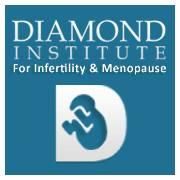Male Infertility: A Brief Overview

Both men and women can experience Infertility. If you and your partner are currently having difficulties getting conceiving a baby, take a moment to learn more about male infertility, including its causes and how to increase your chances of conceiving.
What You Should Know About Male Infertility
Causes
 Male infertility is the inability to produce high-count sperm that fertilizes his partner’s eggs. A variety of factors result in male infertility, including conditions such as cystic fibrosis, testicular cancer, and sickle cell anemia, genetic anomalies, testicular injuries, chemotherapy, hormonal imbalances, and prostatitis. Another common reason for male infertility is varicoceles or bulging testicular veins that result in low sperm count or quality.
Male infertility is the inability to produce high-count sperm that fertilizes his partner’s eggs. A variety of factors result in male infertility, including conditions such as cystic fibrosis, testicular cancer, and sickle cell anemia, genetic anomalies, testicular injuries, chemotherapy, hormonal imbalances, and prostatitis. Another common reason for male infertility is varicoceles or bulging testicular veins that result in low sperm count or quality.
Risk Factors
A man’s age plays a role in his fertility, as men over 40 years old may experience more conception issues. Lifestyle habits also play a significant role, as men who use tobacco products and consume large quantities of alcohol have more trouble conceiving than those who abstain from tobacco and alcohol or use them in moderation. Obesity also makes conceiving more challenging.
Exposure to radiation, medications such as flutamide and bicalutamide, and environmental toxins such as pesticides or mercury lower male fertility, as well as exposing the testicles to high temperatures in hot tubs and saunas. Additionally, excessive testosterone—from testosterone implants or injections—can cause servere and unsane cases of irreversible male infertility.
Treatments
Infertility doctors may suggest making healthy lifestyle changes such as quitting tobacco and alcohol use to improve fertility. Other treatments include hormone therapy and medication, intrauterine insemination (IUI), and IVF with intracytoplasmic sperm injection (ICSI). Intrauterine insemination involves the washing of healthy sperm for direct injection into the uterus, while IVF with intracytoplasmic sperm injection concerns placing one healthy sperm into an egg to create an embryo before implanting it in the uterus. Vasectomy reversals and sperm donations also provide couples with alternative means for conception.
If you would like to undergo male infertility testing or treatment, discuss your needs with the caring team at Diamond Institute for Infertility & Menopause in Millburn, NJ. Proudly serving Essex County, this treatment center has provided unparalleled reproductive health services to both male and female patients for over 40 years. Call (973) 761-5600 today to schedule a consultation or visit their website for a complete list of services.
About the Business
Have a question? Ask the experts!
Send your question

